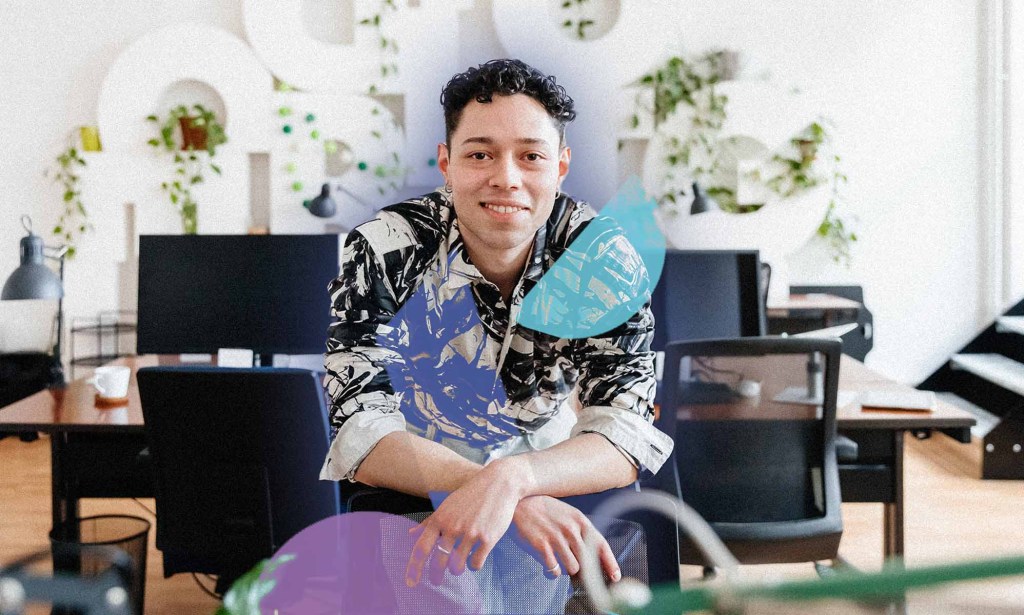How Gen Z’s changing priorities are changing the face of work
Author: Erik Niewiarowski

The youngest generation of workers needs are different than their older colleagues. (Getty Images/PinkNews)
As Gen Z enters the workplace and carve out their own paths, their priorities when it comes to work differs from older generations.
Those born between 1997 and 2012 are entering the workforce more qualified than their grandparents. Eighty per cent of Gen Z will complete higher education qualifications compared to just 15 per cent of Boomers. In many sectors, Gen Z is expected to have industry-specific qualifications to land their first entry-level role.
Gen Z is the first truly digital generation: they’ve grown up with technology and live their lives on social media. They’ve also lived through significant world events including mass shootings in the United States, the pandemic, a war in Ukraine and now a cost-of-living crisis. Given all that, it makes sense that many Gen Z employees are already feeling stressed and burnt out.
When it comes to work and careers, Gen Z wants different things than other generations. They have different needs, and the hustle culture of millennials and company loyalty of Gen X and Baby Boomers are no longer relevant. With Gen Z currently making up 30 per cent of the world’s population and will make up 27 per cent of the workforce by 2025 it’s important to know what they want out of their careers.
So, what does Gen Z want out of work?

Diversity and inclusion
The recent Census report for England and Wales revealed that Gen Z is twice as likely to identify as queer. Another survey from wellness brand Hims & Hers showed that nearly a quarter of Gen Z women do not consider themselves straight. These facts combined with the Black Lives Matter movement in the wake of George Floyd’s murder signal that diversity and inclusion are a priority for Gen Z, and they want to work for a company that is committed to it.
Gen Z is also aware that actual diversity and inclusion are intersectional – meaning that neurodiverse colleagues, ethnic minorities, the disabled and the LGBTQ community all have seats at the table. Businesses need to commit to having diversity in the boardroom and have employee resource groups to ensure that all voices are represented at work.
Purposeful Work
Gen Z wants to work for companies that are making a positive impact on the world. Research from McKinsey confirms that Gen Z is more purpose-driven than other generations. They are highly socially conscious and want to feel like they are making a difference in their work. For example, the environment and climate crisis are top concerns for Gen Z.
Unlike their older colleagues, Gen Z ethics play a big part in where they choose to work. A Deloitte survey revealed that 49 per cent of Gen Z employees have made career choices based on their own personal ethics. Employers should take note of this and make sure that they highlight the purpose behind their work and how it contributes to society.

Work-life balance
A proper work-life balance is something that all employees seek, but for Gen Z it is a top priority. Baby Boomers would never consider taking a mental health day, but Gen Z does. The fact is Gen Z are more attached to their personal life and seek employers that stress how important a proper work-life balance is.
It could be growing up in the aftermath of a recession or the pandemic, but Gen Z don’t live to work. They seek employers that offer mental health assistance and pay attention to wellbeing. Many want the flexibility of hybrid working and the four-day work week.
Career growth and development
Gen Z wants to continually learn and grow in their careers, they are also entrepreneurial and appreciate situations where they can have some ownership. A survey from Handshake found that 71 per cent of Gen Z expect to get promoted within the first year of employment. They value employers that offer opportunities for training, development and mentoring.
Gen Z is a resilient generation, and entering the workforce during a pandemic solidified this. However, just because they have this resiliency doesn’t mean they will stay in a job that doesn’t fulfil their own needs.
Their solution is simple, they simply move on and find a new employer that shares the same values and purpose as they do.
How did this story make you feel?
Sending reaction…
Thanks for your feedback!
Actual Story on Pink News
Author: Erik Niewiarowski




